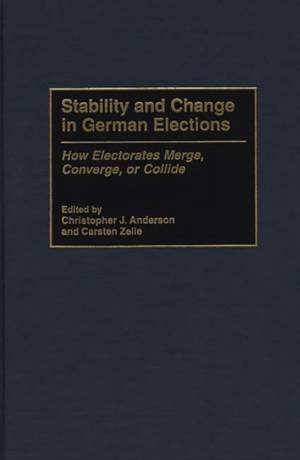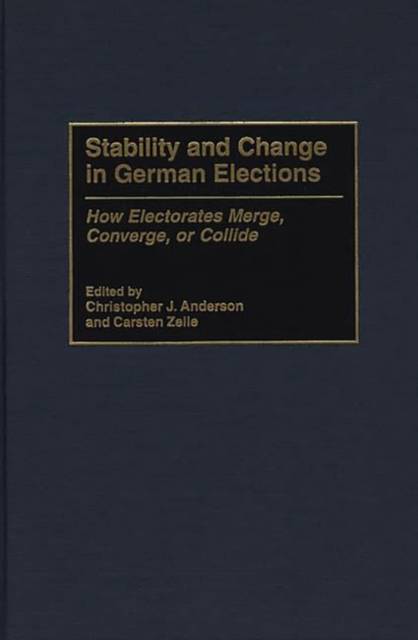
Bedankt voor het vertrouwen het afgelopen jaar! Om jou te bedanken bieden we GRATIS verzending aan op alles gedurende de hele maand januari.
- Afhalen na 1 uur in een winkel met voorraad
- Gratis thuislevering in België
- Ruim aanbod met 7 miljoen producten
Bedankt voor het vertrouwen het afgelopen jaar! Om jou te bedanken bieden we GRATIS verzending aan op alles gedurende de hele maand januari.
- Afhalen na 1 uur in een winkel met voorraad
- Gratis thuislevering in België
- Ruim aanbod met 7 miljoen producten
Zoeken
Stability and Change in German Elections
How Electorates Merge, Converge, or Collide
Christopher J Anderson
Hardcover | Engels
€ 161,45
+ 322 punten
Omschrijving
Anderson, Zelle, and their contributors provide in-depth analyses of electoral trends in Germany--the one country in which an electorate that had maintained stable democracy after World War II was enlarged by compatriots who had experienced decades of socialist rule.
Most of the essays in this book first focus on long-term developments known to affect electoral change in industrial societies such as: societal transformations, changes in ideological thinking, and value change. After establishing if and how these developments have been taking place in the old Länder, they investigate whether similar trends can be observed in the eastern electorate or if the patterns are different. Then, present state and future prospects of electoral politics in the united Germany are assessed. In addition, some chapters concentrate on phenomena visible only in the eastern section in order to investigate causes and effects of these peculiarities. The editors elaborate on common themes and assess the findings in light of the author's guiding questions offered in introductory and concluding chapters. This is a major resource for students and scholars concerned with German politics.Specificaties
Betrokkenen
- Auteur(s):
- Uitgeverij:
Inhoud
- Aantal bladzijden:
- 376
- Taal:
- Engels
Eigenschappen
- Productcode (EAN):
- 9780275962548
- Verschijningsdatum:
- 24/09/1998
- Uitvoering:
- Hardcover
- Formaat:
- Genaaid
- Afmetingen:
- 165 mm x 244 mm
- Gewicht:
- 743 g

Alleen bij Standaard Boekhandel
+ 322 punten op je klantenkaart van Standaard Boekhandel
Beoordelingen
We publiceren alleen reviews die voldoen aan de voorwaarden voor reviews. Bekijk onze voorwaarden voor reviews.












